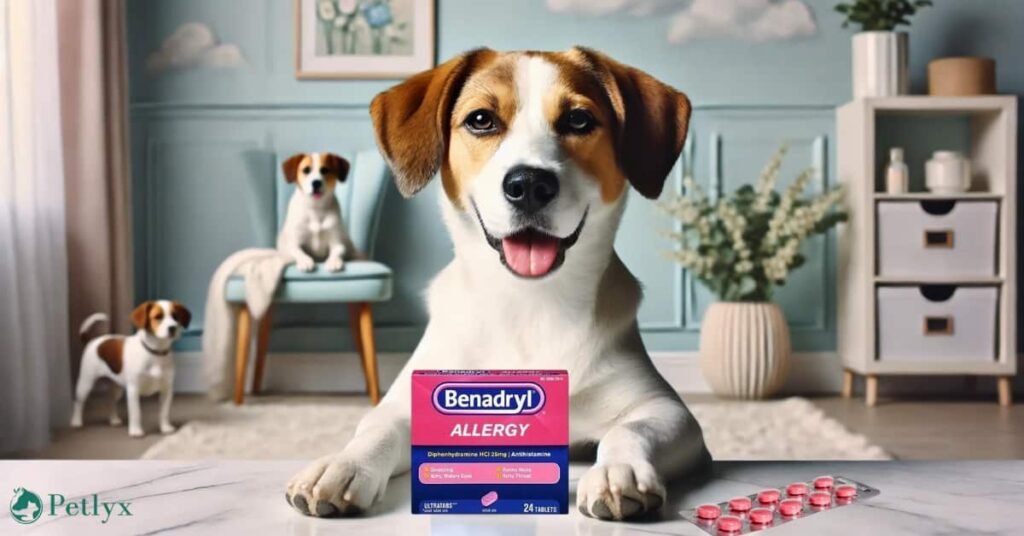Melatonin is a hormone that the pineal gland naturally produces and regulates sleep cycles. People most often use melatonin supplements to treat various sleep problems. But this hormone can also introduce a few more practical advantages to the dog. In the following sections, we will explain how melatonin can be applied for dogs, its benefits, dosage rules, and precautions.
What Is Melatonin?
Melatonin is a naturally occurring hormone that controls the human body’s sleep cycle. In dogs, melatonin can be administered as a supplement to help with:
- Sleep disorders
- Anxiety
- Cushing’s disease
- Hair loss (alopecia)
Melatonin is available in different forms and it includes; tablets, liquid and chewable which allows you to use it on your pooch.
Benefits of Melatonin for Dogs
Melatonin is supposed to benefit dogs in several ways, such as:
- Enhanced sleep: Effective for older dogs and dogs suffering from insomnia or disrupted sleep.
- Anti-anxiety effect: What it does best is reduce stress and anxiety, from fireworks to thunderstorms, you name it.
- Used in managing Cushing’s: Helps in symptomatic control via reducing the output of cortisol.
- Promotes hair growth: Stimulates hair regrowth in specific types of alopecic conditions in dogs.
Sleep Aid
One of the principal uses of melatonin in dogs is to generate quality sleep. Dogs, like older pets, whose sleep pattern has been punctured, can see the benefit in this hormone using its natural ability to regulate sleep-wake cycles.
Anxiety Relief
Melatonin supplementation might be added for its calming effect on dogs. Therefore, it could prove to be useful in reducing anxiety in situations such as exposure to loud noises, riding in cars, and being separated from their owners. In this way, it becomes a very important diagnostic tool for dogs that are displaying generalized anxiety or specific phobias— for example, a fear of thunderstorms or fireworks.
Treatment of Cushing’s Disease
Melatonin can assist in treating Cushing’s disease in dogs where there is an overproduction of cortisol. This is by balancing the levels of cortisol in the body, eventually reducing symptoms such as hair loss, increased thirst, and panting.
Alopecia Treatment
In dogs that were researched and the different studies agreed upon alopecia, melatonin will induce regrowth of hair. This is particularly helpful for cases of seasonal flank alopecia, where dogs lose patches of hair during certain times of the year.
Melatonin Dosage for Dogs
The correct melatonin dosage mostly depends on your dog’s size:
- Small dogs (under 10 lbs): 1 mg
- Medium dogs (10–25 lbs): 1.5 mg
- Large dogs (26–100 lbs): 3 mg
- Extra-large dogs (over 100 lbs): 3–6 mg
Always consult your vet before using melatonin to ensure the correct dosage and avoid any potential risks.
How to Give Melatonin to Your Dog
You can give melatonin to your dog in many ways, such as:
- Pills: Given directly or hidden in food.
- Chewable treats: A dog-friendly option that many pets enjoy.
- Liquid form: Can be mixed into your dog’s food for easier administration.
The method may vary with personal inclination and the recommendations given by the veterinarian.
Safety and Side Effects
Melatonin is generally safe for dogs, but it’s important to monitor your pet for side effects. Possible side effects include:
- Drowsiness
- Mild digestive upset
- Confusion or disorientation
When to Avoid Melatonin
- Pregnant dogs: Should not take melatonin unless specifically directed by a vet.
- Diabetic dogs: Melatonin may interfere with insulin regulation.
- Puppies: Typically not recommended for puppies, as their developing systems could be affected.
Can I Use Human Melatonin for My Dog?
No, you should not use human melatonin on your dog. Instead, try to use pet melatonin. Because some human melatonin may add many things such as artificial sweeteners, which in turn are toxic to dogs.
How Long Does Melatonin Take to Work?
The calming effect: Melatonin works within 15–30 minutes in dogs. It may last for several hours based on dosage and the metabolism of the dog.
Final Thoughts
For common problems like anxiety and disrupted sleeping patterns in addition to certain pathologies melatonin could provide an answer using a natural product. However, it is necessary that the veterinarian is consulted first before including melatonin in the list of drugs for your dog. Having been administered in the correct dose and manner, it can greatly better the standard of living of your dog.






